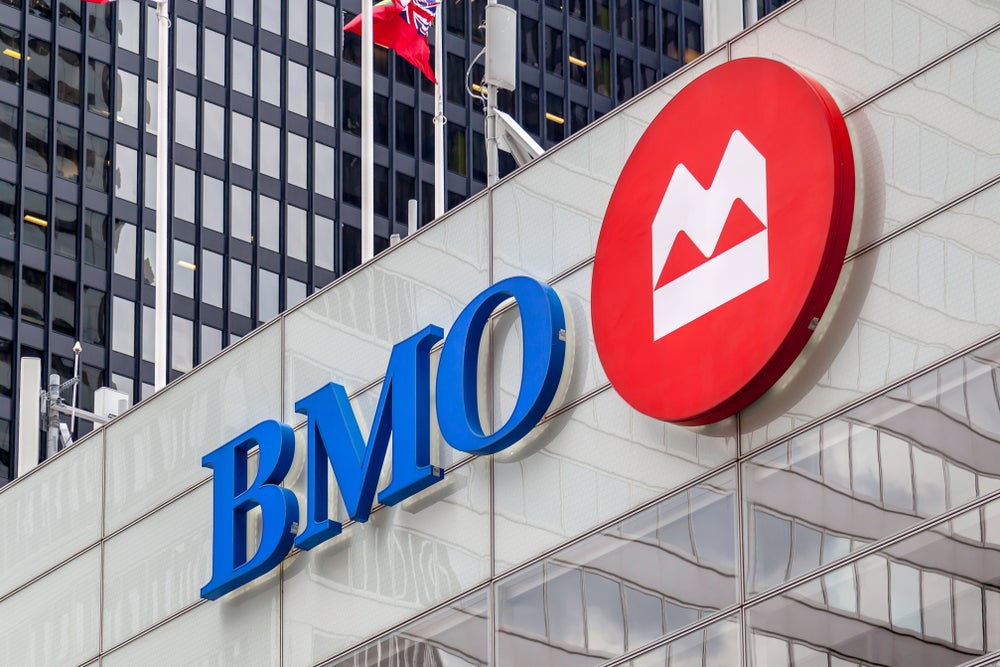For US-headquartered JP Morgan Private Bank, the focus in the UK for over three years has been on successfully servicing and growing HNW clients. Tracey Reddings, managing director at JP Morgan Private Bank UK, and Tracy Maeter, head of investments at JP Morgan Private Bank UK, speak to Meghna Mukerjee about how the wealth unit is surpassing its goals
Managing director at JP Morgan Private Bank UK, Tracey Reddings, joined the private bank in 2011 with the responsibility of growing a new business unit designed to help high net worth individuals (HNWIs) and families preserve and build their wealth.
It has been Reddings’ responsibility ever since to implement a five-year growth strategy for the HNW business that was preapprovedby the private bank’s US headquarters when she joined the business from SG Hambros UK.
At the end of 2014, JP Morgan Private Bank in the UK is ahead of where it would have expected to be – by approximately nine
months – both in terms of break-even and growth ambitions.
"In high level terms, the growth plan was about increasing our client base, assets and revenue four-fold over that five-year period, and increasing our adviser number from five to 50.
How well do you really know your competitors?
Access the most comprehensive Company Profiles on the market, powered by GlobalData. Save hours of research. Gain competitive edge.

Thank you!
Your download email will arrive shortly
Not ready to buy yet? Download a free sample
We are confident about the unique quality of our Company Profiles. However, we want you to make the most beneficial decision for your business, so we offer a free sample that you can download by submitting the below form
By GlobalData"We have achieved break-even almost a year ahead of what we expected. In terms of the growth of assets and clients, we are on
track. We are ahead of where we expected to be for revenue," Reddings explains.
JP Morgan Private Bank’s compound annual growth rate in the UK has been in excess of 30%, which the bank is admittedly pleased about.
Having a 50-year-old legacy in servicing UHNW clients across the globe, the wealth division in the UK broadens the private bank’s reach.
"Across the firm, we have always operated in both UHNW and HNW ($5-25m of investible assets) segments, so it’s not about JP Morgan moving into a new market in the UK, but about having a strategic focus on how we service clients in that space, andrecognising that it’s a strong growth area globally.
"The business plan has been to build up the team and figure out a clear proposition for the clients within the HNW segment," Reddings explains.
However, though the opportunities for growth for this client segement are abundant, HNWs are "generally not very well served in the UK" and the landscape is fragmented as well as competitive, Reddings adds.
Building a team
A priority for Reddings over the last three years has been to build up a team.At the end of 2014, there were approximately 25 bankers on JP Morgan’s HNW team. Together with investment and wealth advisers, across the private bank’s integrated team model, thatnumber goes up to approximately 40.
"We have doubled the size of the UK team in the last three years.
"A lot of other private banks talk about increasing their presence by hiring more advisers, but for us it is not about quantity – it is about the quality of advisers, and finding best-in-class client advisers, because our model is all about getting to know our clients and matching their wealth management needs with our best strategies.
"We want to make sure that our advisers blend into the culture here at JP Morgan and we can give them the time and attention
they need. What we don’t want to do is hire just for the sake of hiring people," she adds.
Rich toolkit
The way JP Morgan Private Bank approaches investment strategies for clients in the UK follows a one-private-banking model globally. "That said, there are obviously local, geographic nuances, and our role as market heads is to enable that," adds Reddings.
Tracy Maeter, head of investments at JP Morgan Private Bank UK, explains that being a recognised global brand automatically gives the private bank a "rich toolkit" to work with in the UK, enabling JP Morgan to cater to the "most complex as well as the most straightforward needs" of its customers.
"Our business was built around the UHNW segment, and that means we are already in a favourable position with HNWs because we have the solutions and expertise.
"We’ve always had a natural footprint with sophisticated clients in the financial sector, whether its hedge funds or private equity or financial services firms, and we are building up the client base. Across the platform in the UK, our client set is diverse," she says.
Maeter explains that the area that is less known-about, but equally relevant to JP Morgan’s business, is the non-financial community
such as entrepreneurs, fiduciaries trusts, and international communities.
In the UK, JP Morgan’s clients are evenly split between UK-resident clients and resident non-domiciled clients.
London continues to be an "attractive centre for wealth management" adds Reddings, not only for British clients but also international clients, being one of the strongest wealth sectors in the world with a transparent framework and clear legal infrastructure.
Maeter says: "The perception may be that given our heritage and ownership, the allegiance of our clients would be US international,
resident non-doms – but that’s not the case. We have seen a marked increase in the UK resident, domestic client base recently."
Focusing on client needs
According to Maeter, the private bank spends time focusing on what works for its clients – new ideas as well as foundations and underpinnings where a strategic approach to wealth management is needed.
"The markets and opportunity sets are evolving, so we are looking to be tactical and appropriate but also creative and nimble with what we do for our clients," she says.
Despite the industry being in a constant state of flux – with regulatory changes, entry of new challengers, higher costs of doing
business, and consolidation – one advantage JP Morgan has, says Reddings, is its "double-headed" business model.
"We have managed solutions for our clients as well as brokerage solutions. Like any other business, we have to think of an efficient way to deliver that in a highercost environment, but we can continue to provide good-quality, high-touch advice to our clients, and help them build their wealth.
"One of the things we talk to our clients about regularly is taking a long-term view and staying invested for the long-term. That does mean thinking about how you ride out the difficult times," she says.
Maeter adds that it is "about getting to know the family the circumstances" and making sure that, as a starting point, the structuring is correct before jumping into offering solutions.
"That has given us a natural network within the intermediary community because we are working with them – having that dialogue – which means we have good relationships in a lot of different areas.
"Similarly, having the ability to work with clients on both sides of the balance sheet – the investment side but also on the lending side – is important because you can have holistic conversations."
Investment appetites
The HNWs’ investment appetites are not all that different from the UHNWIs’, says Maeter.
"We are dealing with the HNW clients as opposed to the affluent clients, so most of our clients might still be building their
wealth and early on in their careers but they have already developed a certain amount of wealth.
"They may be looking to either preserve or grow their wealth in different proportions but the offering as a whole is quite similar," she adds.
Most clients like real estate "in some shape or form", Maeter adds. "There is a range of ways to incorporate that into the portfolio. The alternative asset class plays a role in most of our client portfolios – the scale, and size, and the way they get into it might vary.
"We see equities as being a good investment and not only based on the economic growth but also on the earnings that follow.
"As you go up the wealth spectrum, you can afford to take advantage of the illiquidity premium that certain asset classes offer, but at the end of the day, it all depends on clients’ personal preferences."
Reddings points out that the only noticable differential, perhaps, between UHNW and HNW clients’ priorities is that the latter think more about retirement solutions and have that in their psyche in a way that UHNWIs don’t.
Financial crisis aftermath
Compared to other core financial services industries, wealth management has been the only industry that has showed continued growth in assets and revenues year-on-year post the financial crisis. During this time, clients have also gone through evolutionary cycles in terms of their psychology.
"The whole world has changed postfinancial crisis. Has the nature of the role changed for advisers? Of course it has – it had to change.
"But this is more about how we document everything we are doing for our clients and make sure that they understand, and we
understand their risk profile and how that matches their appetite, in a structured way, so that there are no concerns around where clients are invested.
"We have a higher duty of care to ensure that we rebuild trust among our clients and that comes in different forms, such as giving confidence to our clients that we have the best qualified advisers working across platforms. It’s not only about qualifications, it’s more about the culture of conduct among our people – how they work with clients and build relationships over a long period of time."
Maeter agrees saying that though private banks went through a phase where clients wanted to take back control, the advice from JP Morgan’s side has been consistent, "about building foundations, having a strategy to how we do things, as opposed to it being a knee-jerk reaction".
Savvy clientele
JP Morgan Private Bank services several multi-generational client families.
Most conversations with clients nowadays, says Reddings, are about next-generation planning and the structuring of their wealth.
"It is interesting to see that change in dynamic, where nowadays clients are much more about ‘how do I prepare for the future and succession planning?’
"That also leads into a conversation about philanthropy and our clients’ interest in charitable trusts. The interest is much stronger compared to even five years ago.
"We see the children of wealthy clients getting involved from a much younger age as well."
Reddings says the growth in the clientbase over the last three years has come from "a good balance" between new clients choosing JP Morgan as their main bank of choice in the UK, as well as existing clients doing more with the bank.
"A high percentage of our growth and new business over the last few years has come from the recommendations from our existing client base."
Maeter adds that growth is also coming from the sectors that include more entrepreneurs and corporates. "That is definitely good news for us, because it means that we are diversifying."
Going digital
Increasingly clients – whatever their age – are becoming digitally savvy, internationally mobile, and want to be able to do things quickly and efficiently.
It is a global technology agenda that JP Morgan Private Bank follows and how that is evolving is "very much a global strategy managed from the US", while taking into consideration geographical nuances, informs Reddings.
For JP Morgan, it is important to enhance digital technologies for the clients, but faceto- face dialogue cannot be replaced because it is the only way to understand client needs and fears and how that translates on to their portfolios.
The technology spend has increased for a number of reasons, says Reddings, from meeting regulatory requirements to changing client needs.
"The technology agenda and budget – both vast – are equally split within the ongoing business and ensuring that our technology remains up to date, alongside developing it further," she adds.
Forward-looking plans
Upcoming plans for the year 2015 encompass "more of the same" for JP Morgan, and the private bank has ambitions of doubling its market in the UK in the next three to five years.
"We are well placed to do that. The opportunity is strong in the UK market in terms of the clients that we believe we can serve well.
"It’s all about continuing to build strong foundations in terms of client base – building awareness and perception around JP Morgan’s capabilities and solutions," says Reddings.
A lot of the private bank’s efforts in the UK will also be focused around the entrepreneurial community.
"There are people who, for the first time, are seeing wealth creation opportunities and we have a great role to play in helping
them navigate through that as well as manage their wealth when it does arrive," she adds.
Maeter says while a lot of 2014 has been about deepening existing relationships as well as bringing on new clients, the year 2015 will be a focused on "broadening the reach" for those clients.







